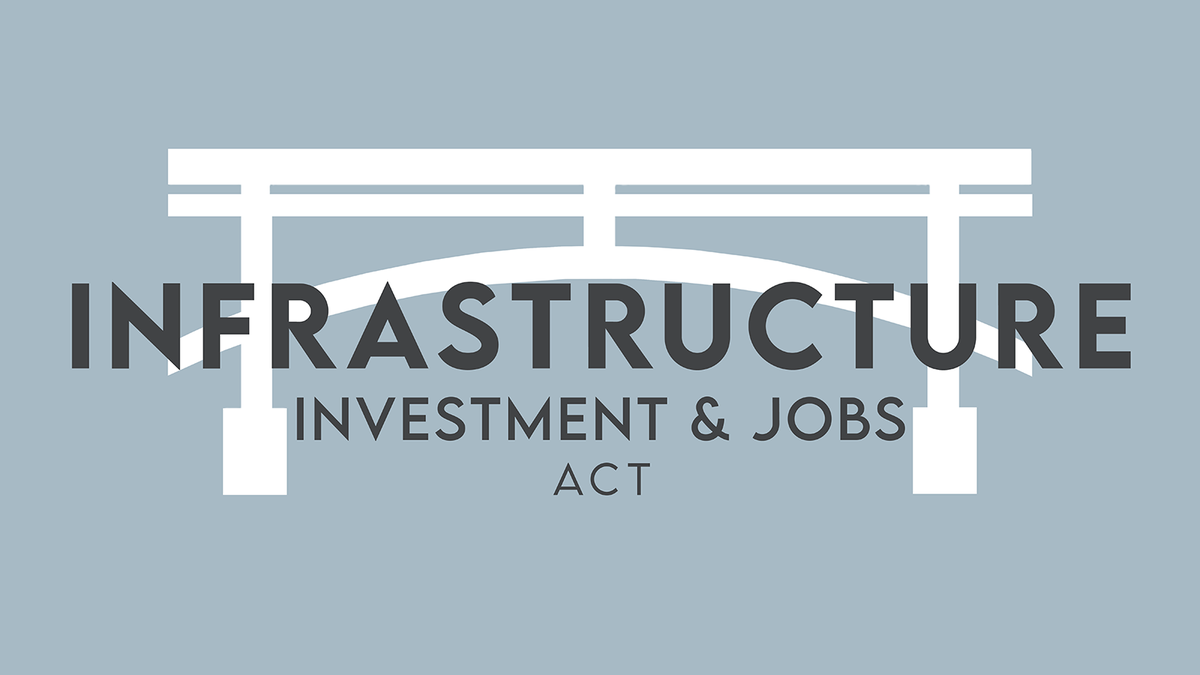Source: United States Senator Kevin Cramer (R-ND)
***Click here for video. Click here for audio.***
WASHINGTON – U.S. Senator Kevin Cramer (R-ND), the Ranking Member of the Senate Environment and Public Works (EPW) Subcommittee on Transportation and Infrastructure, issued the following statement after voting for the Infrastructure Investment and Jobs Act, a bipartisan infrastructure bill passed by the Senate today:
“America’s infrastructure is a worthwhile investment we can’t afford to ignore. The bill we passed today will provide over $2 billion to North Dakota for its roads, bridges, rail, broadband, carbon capture efforts, and orphaned wells cleanup projects, all while making meaningful permitting reforms and reducing bureaucratic hurdles. It pays people to work instead of giving them handouts to stay home, and it includes smart reforms so taxpayer dollars are used more efficiently and unspent COVID-19 relief funds are repurposed for productive activity. I thank Senators Portman and Sinema for their leadership on this effort, as well as Senator Capito, whose work on infrastructure reform earlier this year helped make passage possible today. I urge the House to reject its previous plan to hold this bill hostage and to instead take it up and send it to the President’s desk so we can deliver a significant, bipartisan win for the American people.”
Topline Points
The bipartisan Infrastructure Investment and Jobs Act is a $1.2 trillion bill with $550 billion in new spending over the next five years, which includes:
- $110 billion for road and bridge projects.
- This investment is in addition to the Senate EPW Committee’s $303.5 billion Surface Transportation Reauthorization Act which unanimously passed committee earlier this year and is also included in this bill.
- $66 billion for passenger and freight rail.
- This investment is in addition to Senate Commerce Committee’s $78 billion Surface Transportation Investment Act which the committee passed earlier this year with strong bipartisan support.
- $65 billion for broadband grants to states for the expansion of broadband infrastructure.
- $47.2 billion for cybersecurity and flood and drought mitigation.
- $18 billion for carbon capture technology and reliable, emission-free nuclear power.
- $16 billion for ports and waterways.
- $11 billion for highway safety programs and pipeline repair.
- $2 billion grant program set aside for rural communities.
The bipartisan bill includes methods for paying for the increased spending without raising taxes on the American people, such as repurposing $210 billion in funds previously authorized for COVID-19 relief. Click here for a summary of the bill.
It is backed by over 100 prominent groups including the U.S. Chamber of Commerce, American Farm Bureau, Business Roundtable, National Association of Manufacturers, and more. Click here for a list of national supporters.
Benefits for North Dakota
Specific to North Dakota, the bill authorizes over $2 billion for the state’s roads and highways and over $200 million for clean water. It also funds projects to support construction, maintenance, and repair of bridges, many of which are considered structurally deficient in the state. North Dakota Department of Transportation Director (NDDOT) Bill Panos issued a statement touting the bill’s benefits for the state and thanking Senator Cramer for his work to secure its passage.
“Enactment of this bill will increase funding for ND roads and bridges by about $125 million per year, approximately a 50% increase over the next 5 years,”said Director Panos. “This legislation will allow the NDDOT to address real transportation needs throughout North Dakota. It will enable us to make more road, bridge, and safety improvements, and make them sooner than anticipated. This bill also provides much needed funding for ND’s Transit Providers. It will help us make our systems more resilient as we move toward the future. The passage of this bill will create good paying jobs for North Dakotans, strengthen our state’s economy, benefit businesses, farmers, individuals, and families along with every citizen of North Dakota. We are very appreciative of the work that was done by Senator Cramer and Senator Hoeven to support this package, which also includes benefits beyond transportation.”
In addition to Director Panos and national stakeholders, the North Dakota Chamber of Commerce, North Dakota Farmers Union, North Dakota Rural Water Systems Association, Associated General Contractors of North Dakota North Dakota-based National Sunflower Association, and North Dakota Concrete Council all issued statements in support of the bipartisan infrastructure bill and Senator Cramer’s work on it. Click here to read their statements.
Cramer Priorities Secured
The Infrastructure Investment and Jobs Act uses as its foundation the Surface Transportation Reauthorization Act, a bill Senator Cramer helped write and unanimously pass through the EPW committee in May 2021. That $303.5 billion investment in transportation infrastructure contained some of Senator Cramer’s highest infrastructure priorities, which the bill passed today kept intact, including:
- Distributing more than 90 percent of the transportation funding via the current funding formula so state and local governments have guaranteed funding and flexibility to meet their constituents’ needs, and
- Codifying permitting reforms like the Trump Administration’s One Federal Decision rule which will allow transportation infrastructure projects to be completed in a much more expeditious manner. It also allows for expedited permitting of gathering lines on federal land and energy-producing tribal land for those who choose to participate.
The bill also limits the expansion of urban transit programs and includes three of the senator’s bipartisan bills:
Throughout this year, Senator Cramer has used numerous hearings, floor speeches, and media appearances to call for a smart, significant investment in American infrastructure. Last week he spoke twice on the Senate floor about the effort, delivering remarks on Wednesday about why Congress should make such an investment and the negative consequences of inaction.
